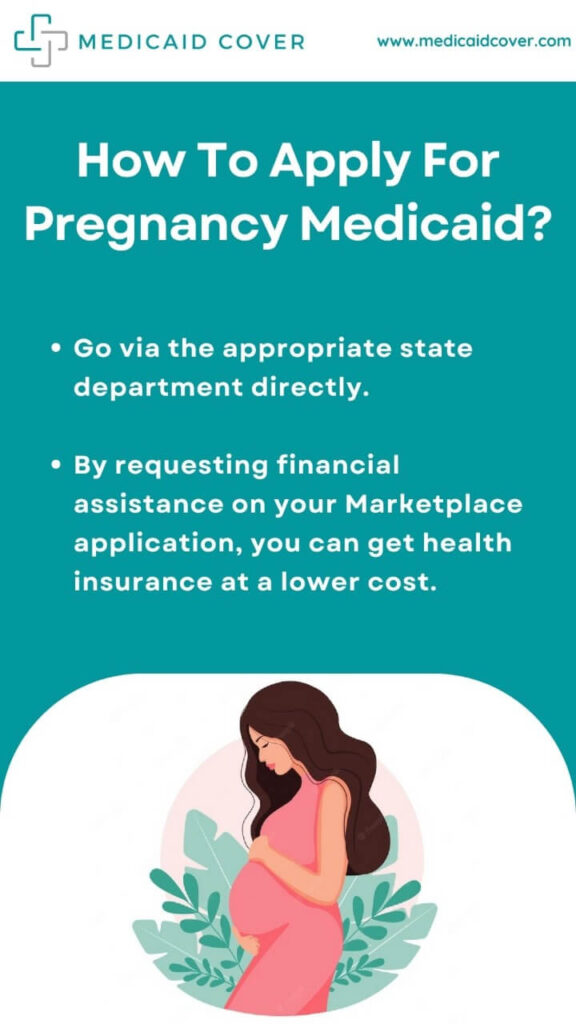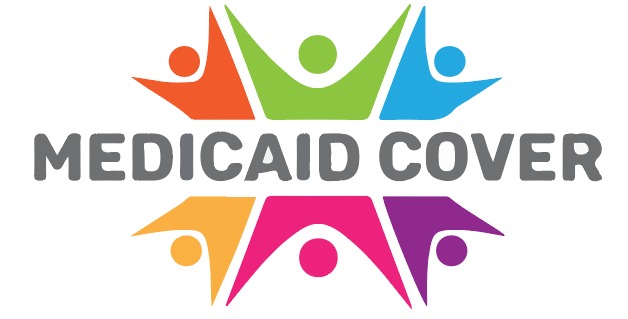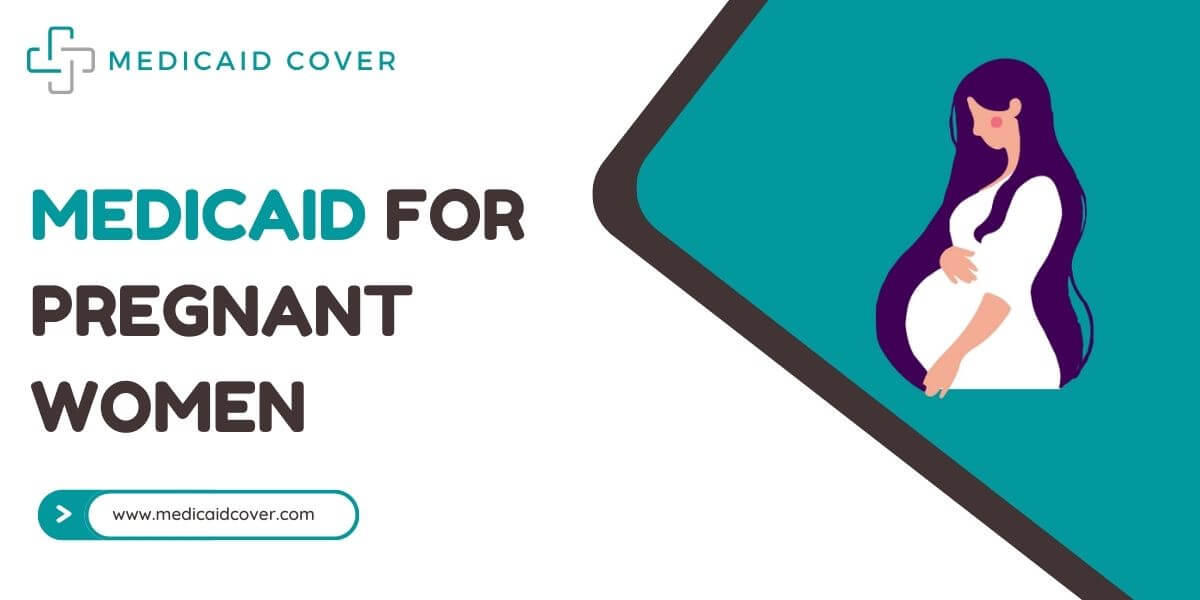Medicaid, or the Medical Insurance for All Americans Program, is a federally funded health care program for low-income individuals and families.
Women who qualify for either CHIP Perinatal or Medicaid for Pregnant Women may be eligible for no-cost prenatal care and delivery.
All nine months of pregnancy and the first two months after giving birth are covered by Medicaid for low-income women.
For pregnant women who do not qualify for Medicaid and who do not have private health insurance, CHIP Perinatal offers comparable coverage.
Pregnant women can find assistance in all 50 states, thanks to Medicaid or a comparable program.
Adults, children, and those with disabilities can all qualify for Medicaid’s health coverage options.
Read Also: Does Medicaid Cover Abortions? Read Here
How To Apply For Pregnancy Medicaid?
In addition to the annual Open Enrollment Period, Medicaid and CHIP applications are accepted year-round.

There are two ways to submit an application :-
- Go via the appropriate state department directly.
- By requesting financial assistance on your Marketplace application, you can get health insurance at a lower cost.
During your pregnancy, if you’re qualified, you’ll be covered for 60 days after giving birth. You might not be eligible after 60 days.
If your Medicaid or CHIP coverage is going to expire, your state’s Medicaid or CHIP agency will send you a notification.
If you want to be sure you don’t go without health insurance, now is the time to sign up for a plan through the Marketplace.
Having Medicaid at the time of delivery ensures that your newborn will be enrolled in the program and covered for at least a year.
Read Also:
Medicaid Pregnancy Coverage
Pregnant women and their babies benefit greatly when their mothers are guaranteed access to affordable health care.
Health outcomes for both mothers and their children can be improved by access to prenatal services, which are an important part of pregnancy services.
Non-pregnant mothers are three times more likely to have a low birth weight and are five times more likely to die.
On the other hand, many expectant mothers cannot afford prenatal care. Almost 40% of mothers said that they didn’t get prenatal care until after their due date because they couldn’t afford it or didn’t have insurance.
If pregnant women are eligible for Medicaid, they are more likely to receive the care they need, which in turn helps improve maternal and child health.
What Does Medicaid Cover For Pregnancy?
Whether or not a woman is eligible for medicaid pregnancy coverage is dependent on her household income and other factors as listed below:
-
Access To Medicaid’s Full Benefits
A woman who is pregnant might be able to get full Medicaid coverage.
Her eligibility is context-specific and may be affected by factors such as the stage of her pregnancy and the number of people in her household.
A pregnant woman is eligible for full-scope Medicaid coverage throughout her entire pregnancy as long as her pregnancy is medically verified and her household income does not exceed the limit set in her state by the cash assistance program (AFDC) that was in effect on May 1, 1988.
-
Medical Care During Pregnancy Is Covered
To qualify for Medicaid under the coverage category for pregnancy-related services and conditions that might complicate the pregnancy, the pregnant woman’s household income must be at or below 133% of the Federal Poverty Level (FPL) (or up to 185% FPL, depending on the state).
But still below the AFDC limits for full-scope Medicaid coverage as described above.
-
Postpartum Period
However, no state may reduce coverage to a level lower than 133% FPL (or up to 185% FPL, depending on the state).
If a woman is covered by the state during her pregnancy, she will continue to be covered through the month after her baby is born, even if she experiences a change in income that would have made her ineligible before.
Medicaid Pregnancy Income Limit 2022
To see if they qualify for federally subsidized coverage through the federal health exchange, pregnant women with household incomes between 213% and 400% of the FPL should complete the federal application, which can be found at www.Healthcare.gov.
Pregnant women whose families make more than 400% of the federal poverty level can apply for coverage on Healthcare.gov, or they can shop around in the current private health insurance market.
Pregnant Medicaid Eligibility
Medicaid eligibility documentation varies by state, so it’s best to check with yours directly, but in general, the following forms are required :-
- The Pregnancy Test Results.
- If you are a legal resident of the United States, please provide evidence of your citizenship.
- Valid documentation of foreign nationality or permanent resident status if applicant is not a US citizen.
- Submit income documentation.
Do All Pregnant Women Qualify For Medicaid?
Medicaid eligibility requirements are not as cut and dry as those for other government programs.
For the most part, people can easily determine if they meet the minimum requirements for participation in government programs and whether or not they fall within the income thresholds for those programs.
A person’s income is just one of many factors considered when determining Medicaid eligibility; however, there are many other ways to qualify.
If they don’t fall into one of the Medicaid categories, not even the poorest of the poor will be able to get health insurance through the government program.
And people with middle-range incomes may be eligible if they fall within one of the qualifying groups and make use of options like “share of cost” (which functions like a deductible before full coverage begins).
Pregnant women have access to free medical care throughout their entire pregnancy, including the delivery and any complications that may arise, and for up to 60 days after giving birth.
Pregnant women who receive care prior to enrolling in Medicaid may also be eligible to receive reimbursement for that care.
Can I Get Medicaid For My Unborn Baby?
Yes. Medicaid pays for everything from prenatal care and delivery to any other necessary medical care during pregnancy and afterward.
When calculating the number of people living in a house, the pregnant woman and any children she is confirmed to be carrying counts as 1.
Is Medicaid Free For Pregnant Mothers?
All medical costs for pregnant women who qualify for Medicaid are covered at no cost to the family.
To qualify, your household income during pregnancy must be below or equal to the Medicaid poverty guidelines.
A pregnant woman’s household income may be used to determine Medicaid eligibility at a higher threshold than that used for other adults.
At any time during your pregnancy, you can apply for Medicaid coverage.
Simply applying for Medicaid is the best way to find out if you qualify for the program.
Can Pregnant Women Be Denied Medicaid?
There are a number of reasons why Medicaid may refuse to cover a pregnant woman.
Before filling out an application, make sure you have read and understood the criteria for acceptance.
Since the government cannot afford to give taxpayer-funded benefits to everyone who applies, there must be some sort of threshold.
Two primary criteria are citizenship and household income levels relative to size.
Pregnant women who make too much money to qualify for Medicaid in their state often face denial.
It would be a bad idea to overstate your income or to settle for a low minimum wage if possible.
- Even if a woman’s income is too high for her to qualify for Medicaid, she still has a number of other options for obtaining health coverage, such as the Children’s Health Insurance Program (CHIP), private insurance, moving to a different state, or the Medically Needy Program.
- No-waiting-period maternity insurance is an option, but you might have to wait until January to enroll in it, unless you’ve had a qualifying life event.
The devil, as usual, lies in the finer details.
Improve your chances of acceptance by paying close attention. If a pregnant woman is denied Medicaid, she still has a lot of choices for getting medical care if she cannot afford it.
Those women whose household income was determined to be too high may wish to appeal the decision if they believe they were incorrectly informed of any of the numerous factors that go into determining eligibility.
Frequently Asked Questions
How does a woman’s Medicaid status change once she becomes pregnant?
On the whole, not much.
When a pregnant woman is already qualified for and enrolled in full-scope Medicaid, she does not lose her coverage just because she is expecting a child.
It is possible for a pregnant woman to maintain her Medicaid Expansion coverage at least until she is reevaluated.
The state is responsible for informing the woman of the options available to her regarding coverage during her pregnancy, including pregnancy-related Medicaid.
Does Medicaid cover newborns as well?
Yes. If a pregnant woman is enrolled in Medicaid or CHIP at the time of delivery, her newborn baby is automatically covered by one of those programs.
Coverage begins at birth and continues for a full year, regardless of whether or not there is an increase or decrease in household income during that time.
Do pregnant women have access to full-scope and expand Medicaid’s comprehensive health coverage?
Yes. Medicaid pays for everything from prenatal care and delivery to any other necessary medical care during pregnancy and afterward.
Can I get a chip or Medicaid if I’m pregnant?
It’s legal in several states, but not all of them. Full-scope Medicaid in every state fully covers all necessary treatments, including prenatal care, delivery, and more.
Medicaid will pay for any services “essential for the health of a pregnant woman and foetus, or that have become required as a result of the woman having been pregnant.”
How long does a woman have access to Medicaid or CHIP during her pregnancy?
If you qualify for Medicaid or CHIP because of your pregnancy, your coverage will continue until the end of the month in which your 60-day postpartum period concludes, regardless of any changes in your household’s income.
Conclusion :-
Women of low income who become pregnant and are uninsured have the option of enrolling in Medicaid and receiving full prenatal and postpartum care.
In most cases, pregnant women who have health insurance prior to becoming pregnant can continue with the same plan or switch to Medicaid if they become eligible.
It’s possible that a woman’s health insurance choices will shift once she gives birth, allowing her to switch to a new provider or return to an old one.

